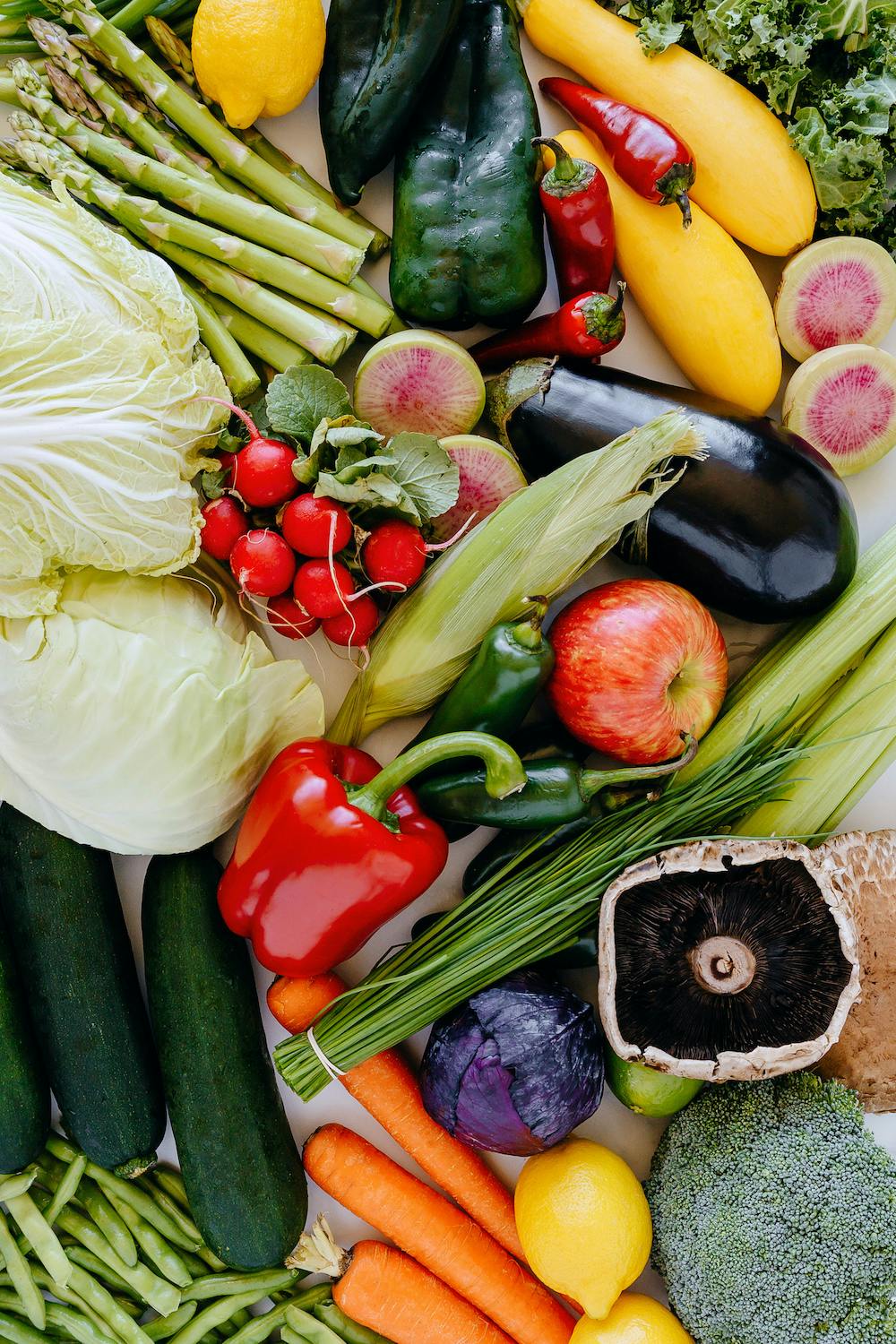
The 4 Essential Nutrients Pregnant Women Need
By Danielle McAvoy
June 29, 2024
Good nutrition is a top priority for expectant moms. The foods you eat now nourish your body as well as your growing baby. This means the majority of your diet should consist of nutrient-dense vegetables and fruits, lean and plant-based proteins, whole grains, and healthy fats. You don’t need to eat twice the calories, but you’ll want to boost your intake of a few essential nutrients. And because our bodies are much better at absorbing nutrients when in their natural state, the best way to get these nutrients is through food.
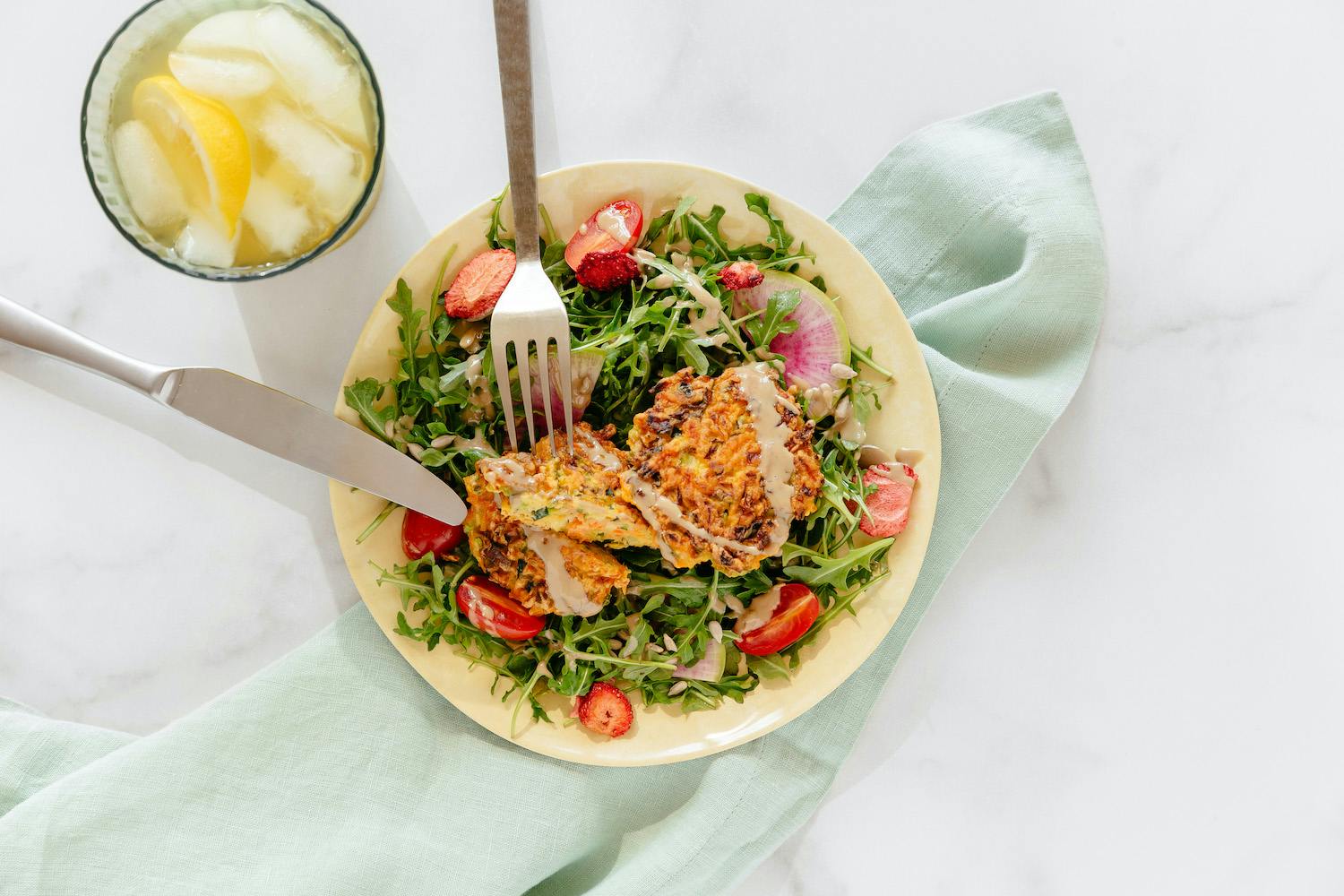
1. Folate
This B vitamin helps prevent brain and spinal cord defects in developing babies. (The terms folate and folic acid are often used interchangeably. Folic acid simply refers to the synthetic form of natural folate.) Top food sources of folate include spinach, asparagus, beans and lentils, and citrus fruits. Fortified grains are the primary food source of folic acid. Meeting the recommended daily requirement of 400mcg of folate or folic acid solely through food can be difficult, which is why many doctors recommend that pregnant women take a supplement.
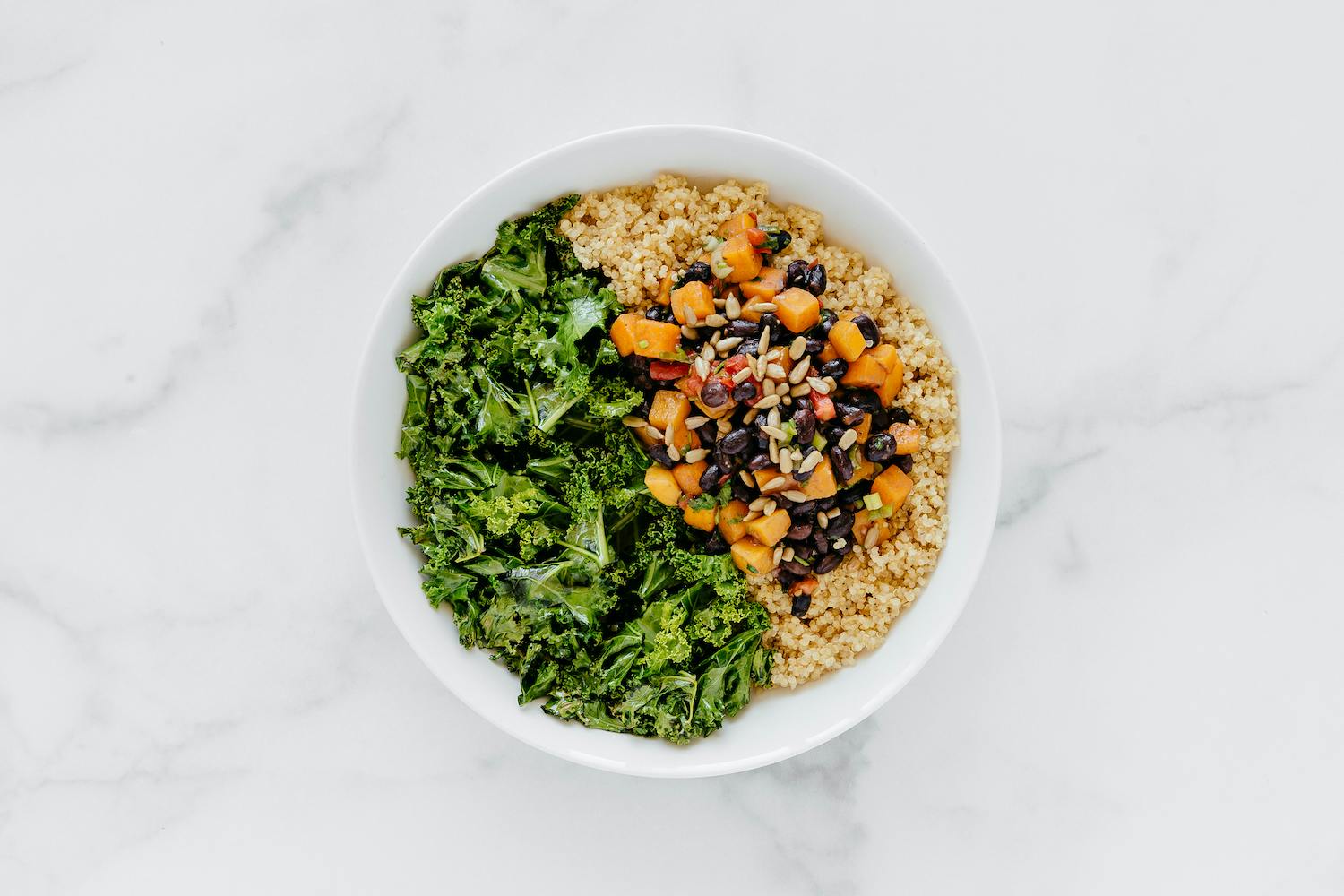
Territory meals high in folate:
- Mediterranean-Style Salmon with Roasted Asparagus and Caponata (available on the East Coast)
- “Humble” Indian Lentil Bowl with Sautéed Spinach and Yams (available on the West Coast)
- Teriyaki Salmon With Coconut Spinach And Bok Choy (available in Texas)
- Black Bean & Butternut Squash Bowl with Quinoa and Wilted Kale (available on the East Coast)
2. Calcium
Babies need calcium for strong teeth and bones. If an expectant mother isn’t getting enough calcium, her body will draw calcium from her bone stores to help the developing infant. It’s recommended that women get 1000mg of calcium per day during pregnancy. Dairy foods are an excellent source of calcium, and it’s also added to many plant-based dairy alternatives. Leafy greens and soy are other calcium-rich foods.
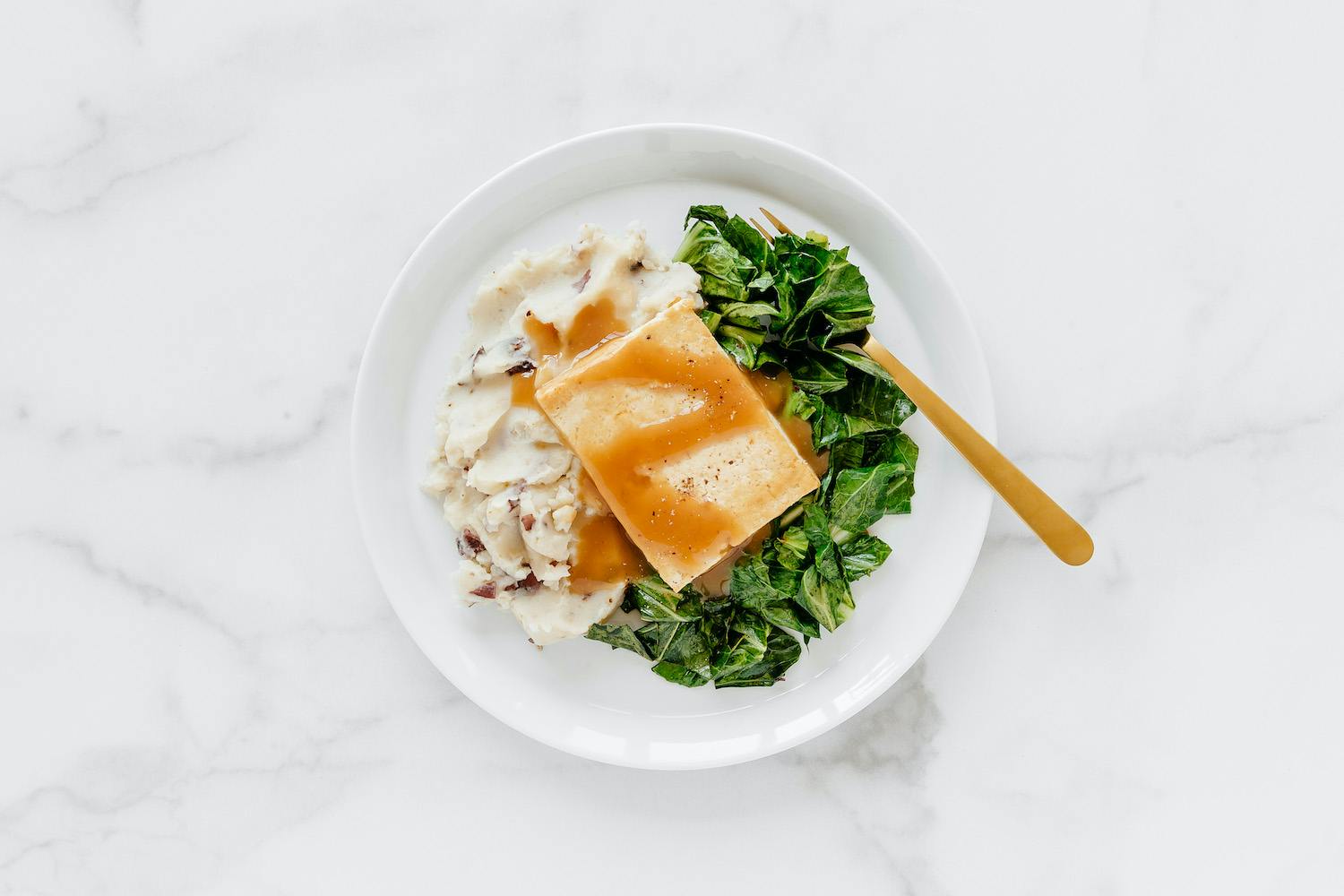
Territory meals high in calcium:
- Beet Medley Risotto w/ Broccoli Rabe (available on the East Coast)
- Vegan Smothered Tofu w/ Smashed Potatoes & Gravy (available in the Bay Area)
- Ethiopian-Style Lentils & Braised Collards (available on the East Coast)
3. Iron
A woman’s blood volume can increase by almost 50% during pregnancy. To produce that extra blood required to supply oxygen and nutrients to the womb, a pregnant woman needs 27mg of iron a day, about twice the normal requirement. Lean, red meats, poultry, kidney beans, and spinach are all good sources of iron. Vitamin C helps the body absorb iron.
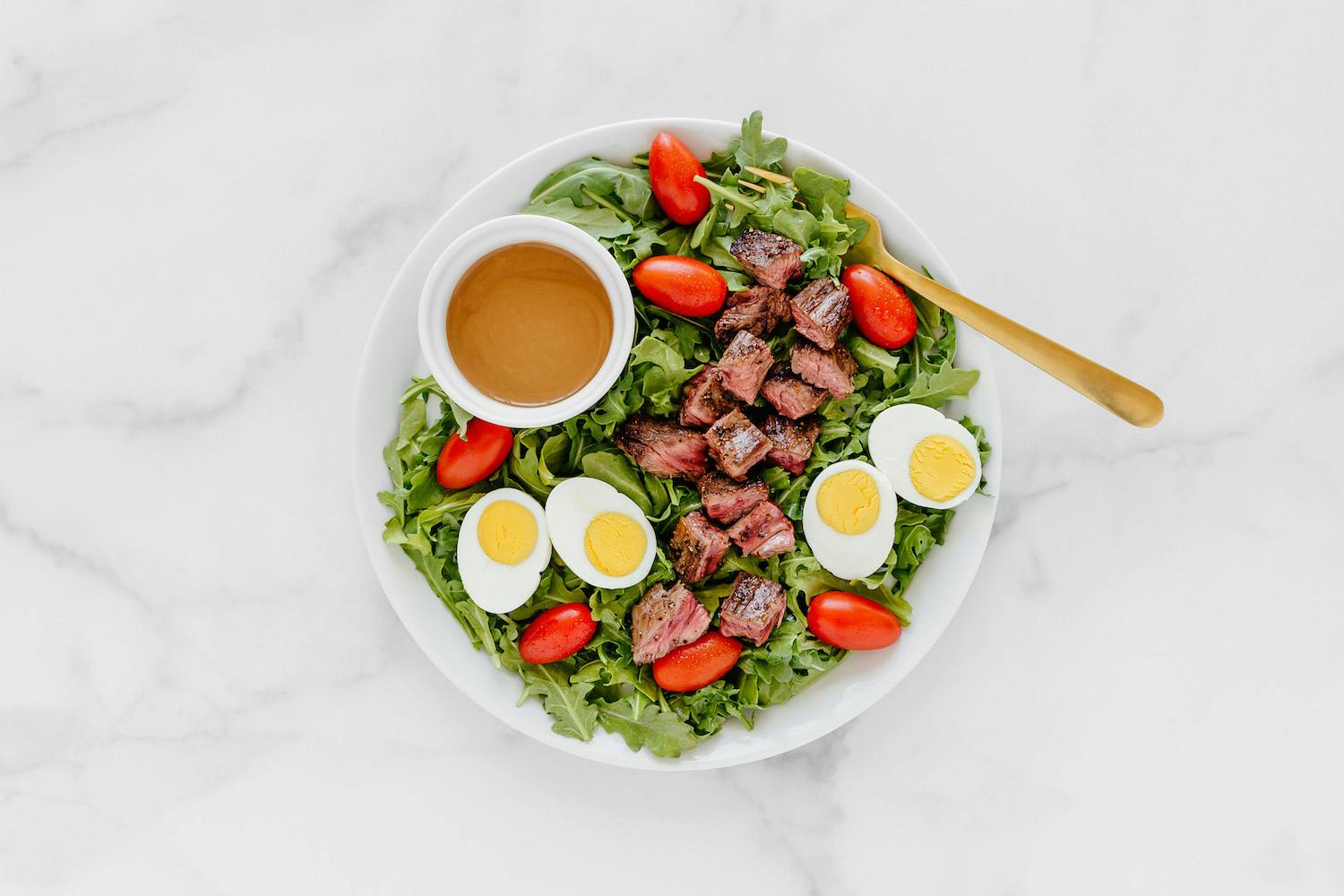
Territory meals high in iron:
- Roast Beef with Au Jus, Grilled Asparagus and Roasted Fingerlings (available on the East Coast)
- Surf & Turf (available in Texas)
- Steak and Arugula House Salad with Red Wine Vinaigrette (available in Southern California)
4. Protein
Developing babies require protein to build muscle, and form their organs and tissues. The amount of protein necessary depends on a woman’s body composition and activity level, but the minimum recommended amount is 71g per day. Protein needs can easily be met through a healthy diet. Lean meat, fish, eggs, quinoa, beans and lentils, soy nuts, and seeds are all excellent sources.
Nutrient Dense Foods Are Key
Eating a balanced diet should ensure that you get enough of these key nutrients to support your well-being and your healthy baby. Wholesome ingredients like fresh produce, lean meats, and healthy fats include natural compounds like fiber and phytochemicals that help your body absorb the nutrients you need. While supplements are sometimes recommended to support your healthy diet, food is the first and best source of nutrition.
Territory meals are made with nutrient-dense foods that fully support a prenatal diet. Folate, iron, and calcium-rich foods like broccoli, leafy greens, beans, and asparagus are prepared in a variety of ways each week by our talented network of chefs. The majority of meals include more than 20g of protein from clean sources.